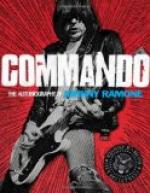The privations that we had already endured were small indeed in comparison to those which awaited us. It was well with the Uitlander optimist who remained in our country while the Republics could give him the comforts he demanded as his right, but who, as soon as things went wrong, and he saw nothing but misery in the future, left for his own country—there to sit in judgment on our peasant-nation. How I long for the gift of being able to express myself, to give a true account of the self-denial of our burghers and of the misery that we endured! How my heart bleeds when I think of the great sorrow that has come upon my poor people!
When the enemy approached the Delagoa railway-line, President Steyn left with his escort for Hectorspruit. I had to follow with a trolley for which there was no room on the train. Because of the disorder that reigned everywhere I had to wait nearly three days before I could start. I was pretty nearly famished on my arrival at Hectorspruit, and ate greedily of the remains of the porridge left by some burghers, among whom were two sons of State Secretary Reitz. President Steyn’s lager had in the meanwhile become 250 men strong, under Commandant Lategan, and was then at Krokodil River.
At Nelspruit I met a couple of old friends, Malherbe and Celliers, with whom I left for the lager. They were both Transvaalers who had been studying in Holland, but had returned before finishing their studies on account of the war. The commando was well supplied with weapons and ammunition, as the Delagoa Bay line brought plenty to our store. What became of the rest I do not know, as President Steyn was in a hurry and our commando left first for the North.
The ford at Krokodil River was about fifty paces wide—made for the occasion and difficult to cross. The trolleys and waggons that had to cross to the lager on the opposite side gave us much trouble, as they sank deep into the sand. We harnessed a double span of oxen to the waggons, undressed ourselves, and had to swim alongside the animals to get them through. Occasionally something dropped from one of the waggons and had to be fished up in a hurry to save it from the strong current. There was much shouting and laughter, and if any crocodile had been in the neighborhood he would have suppressed his hunger until the storm was over.
On the banks of the river there was a constant shooting at fish and game, and even at crocodiles, who showed themselves occasionally. There was game in abundance. It seemed as if all the game of the Transvaal, that is becoming so scarce, had fled to this part.
We were on our way to Pietersburg through the Boschveld of South-East Lydenburg, which might be called a desert in winter. It was a journey difficult even for a trek Boer, and more than difficult for a large commando. A man called Bester was our guide. Some two years before he had made the same journey on a hunting expedition, and now he was able to follow the ruts which the wheels of his waggon had made then, and which would be in all probability deepened by the summer rains. Our means of transport were chiefly carts and trolleys, on which we also put our bedding to lighten the burden of our riding horses.




